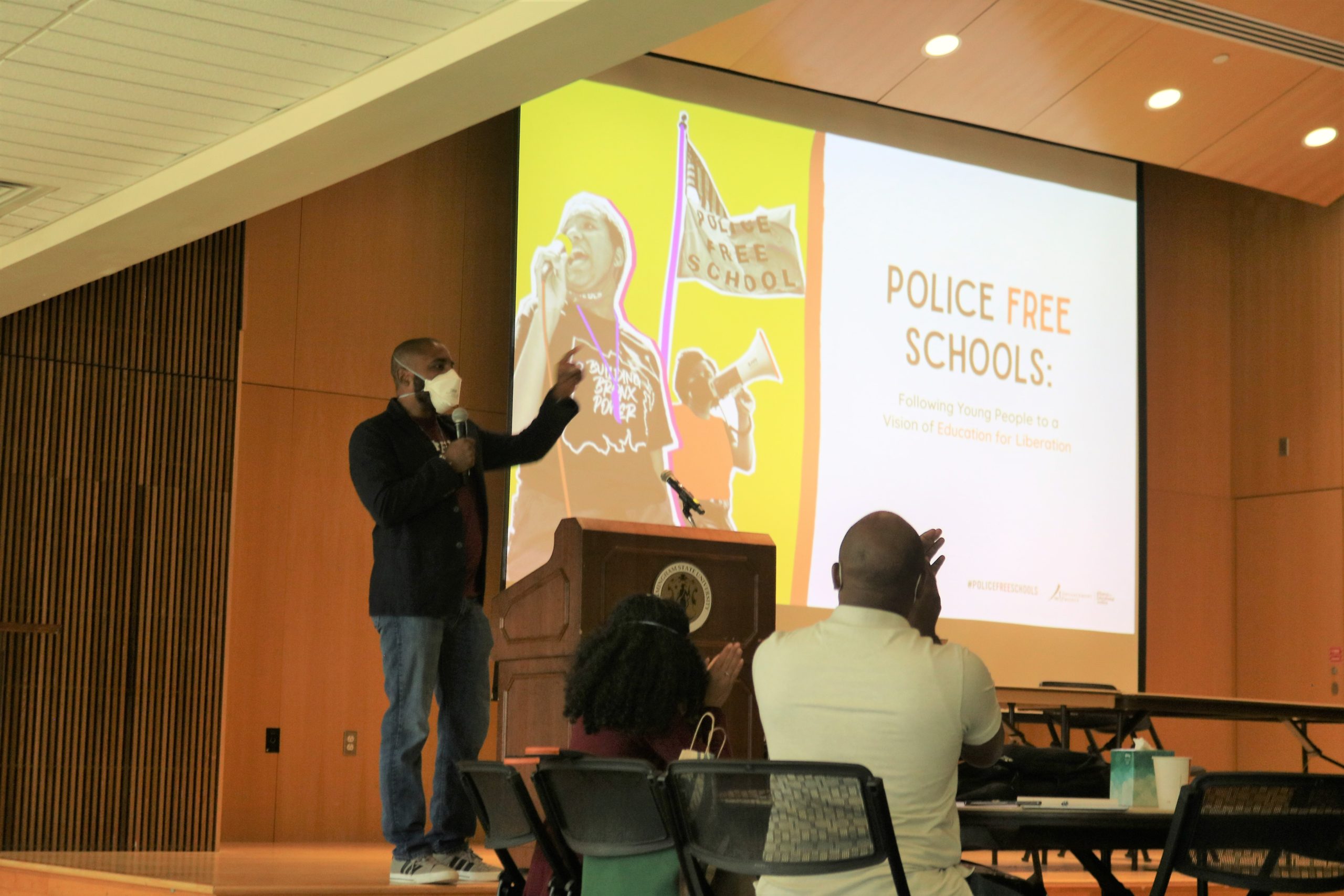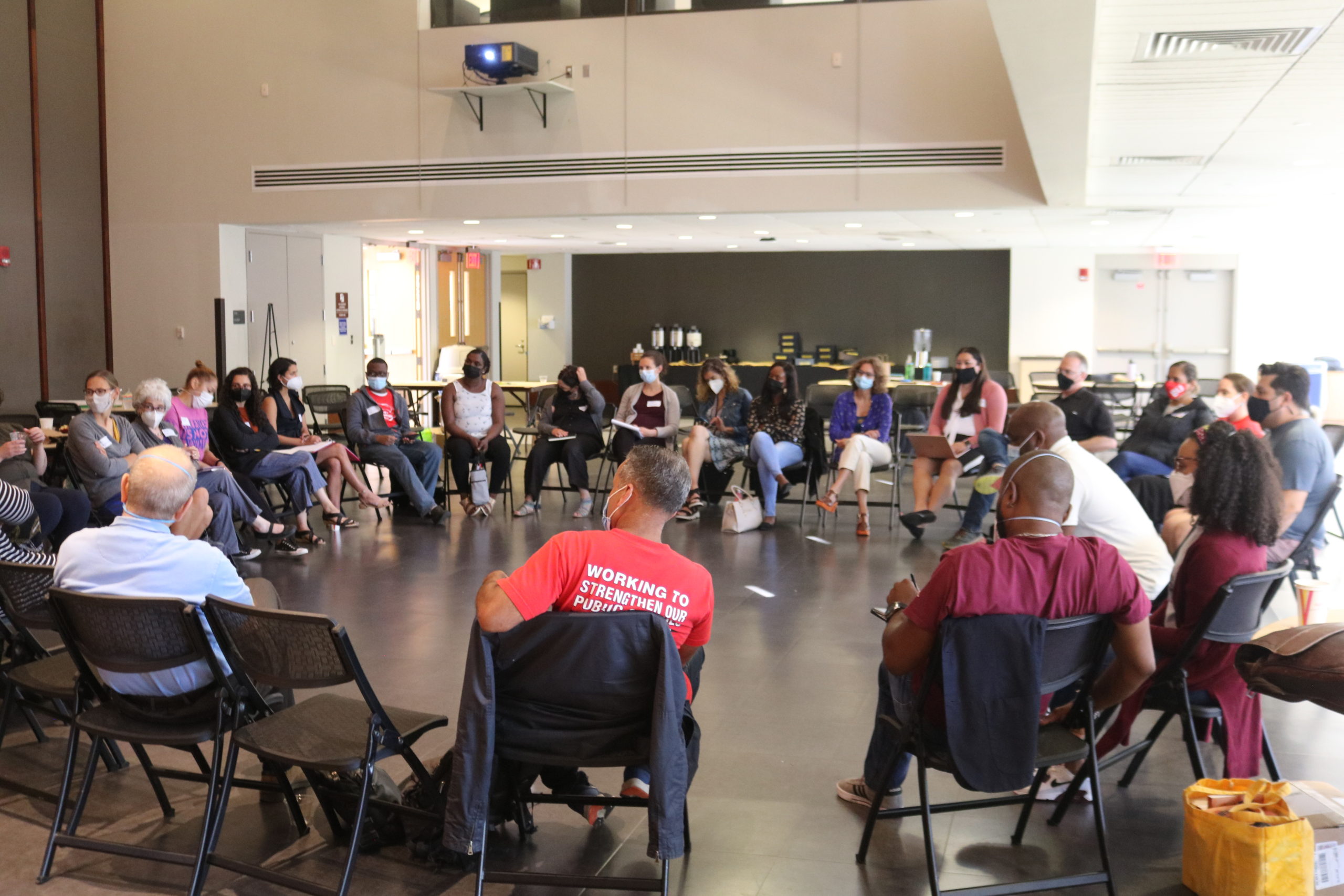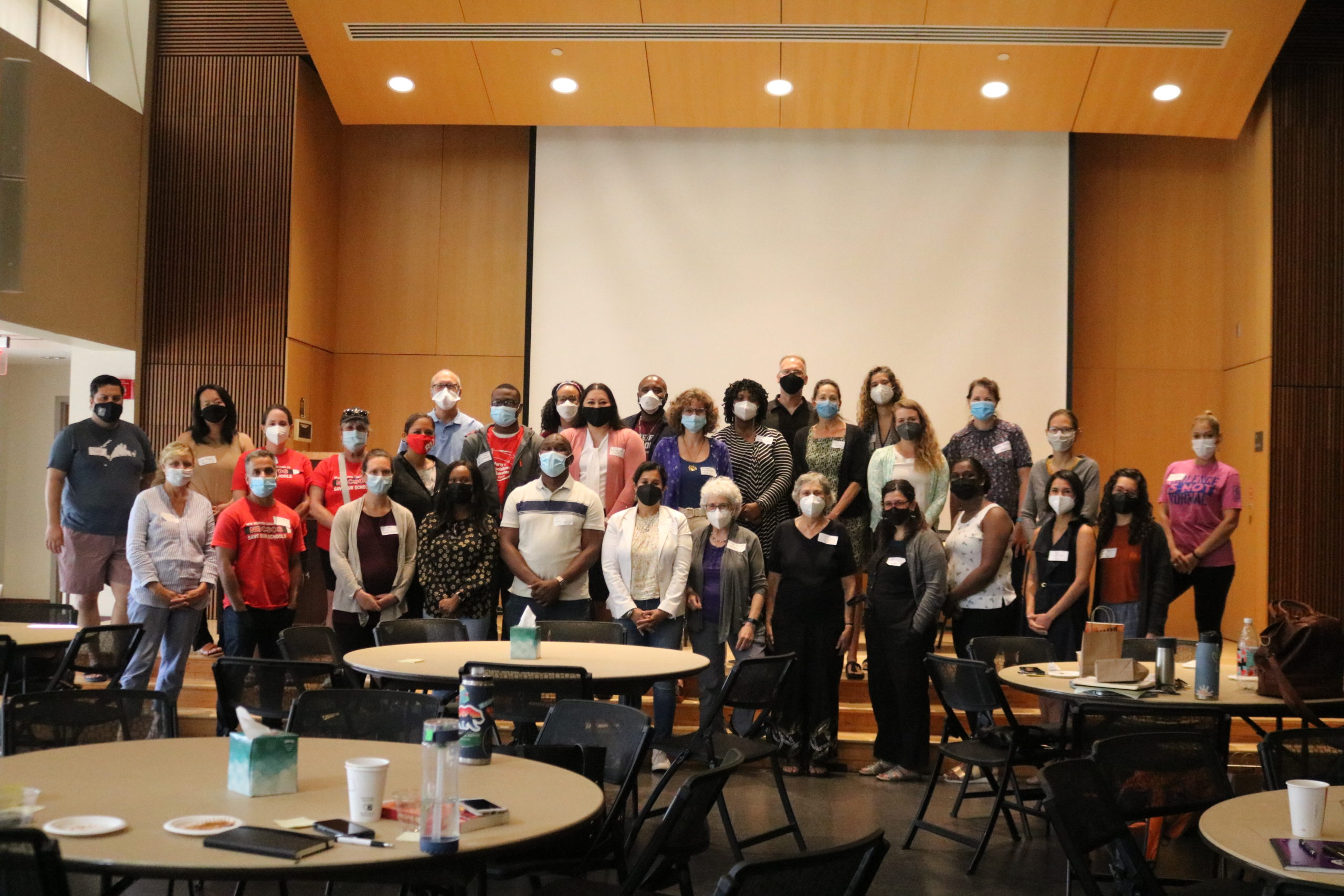Authored by Matthew Cregor, MHLAC Staff Attorney

On Saturday, July 9th, 40 parents, educators, organizers, and attorneys gathered in Framingham for Organizing for Police-Free Schooling: Understanding the History of School Policing and Strategies for Safe Schools without Police Presence.
The meeting took place as communities across the Commonwealth and country reconsider the placement of police in schools. Last school year, Worcester removed its school-based police; Somerville suspended its school resource officer program while Brookline eliminated its program altogether. After the tragic school killings in Uvalde, Texas, and the failed police response thereto, the Boston Globe called school policing a “cop out” compared to more effective school safety measures.
The convening featured presentations from:
- Jonathan Stith, coordinator of the Alliance for Educational Justice and co-director of the national Campaign for Police-Free Schools
- Mark Warren, professor of public police and public affairs at UMass Boston and author of Willful Defiance: the Movement to Dismantle the School-to-Prison Pipeline
And insights from:
- Maria Fernandez, Managing Director of Campaign Strategy at the Advancement Project
- Members of Framingham Families for Racial Equity in Education (FFREE), and
- Unafraid Educators
The afternoon served as a strategy session for members of the Statewide Connection on School Policing: a “two-way sounding board” of support between local advocates and state level advocacy organizations seeking the removal of police from schools.

The Mental Health Legal Advisors Committee (MHLAC) co-organized and co-sponsored the event, together with Citizens for Juvenile Justice, the Massachusetts Education Justice Alliance, Framingham State Department of Sociology and Criminology, and the Schott Foundation for Public Education.
Why has MHLAC invested significant energy in efforts to reform and remove school-based police? Students with mental and/or behavioral health needs, particularly if they are Black or Latinx, are far more likely than their peers to be met with police responses in school disciplinary incidents. This is often due to schools’ failure to follow federal special education law as well as to the ease with which school-based police can become schools’ default disciplinarians, particularly for the students considered the most challenging. The consequences are dire: the dropout rate for students with mental and behavioral health needs is alarming, and a first-time arrest doubles the odds a student drops out. In short, placing police in schools increases the chances that students with mental health needs drop out, severely restricting their ability to live their lives as independently as possible. In light of this, MHLAC led the advocacy community’s successful effort to address school policing in the Criminal Justice Reform Act of 2018, and continues to serve as a convener for both the advocacy community and grassroots organizations on the issue.

